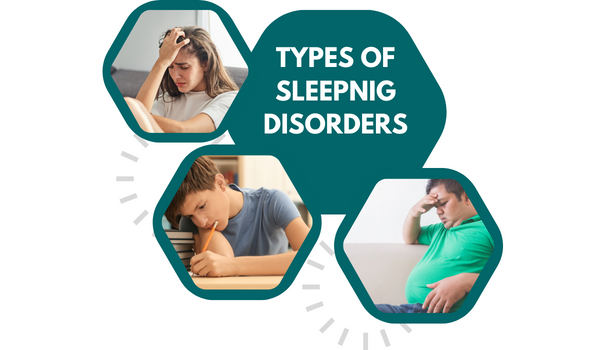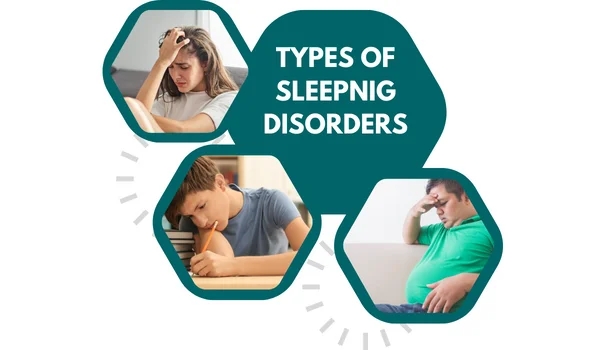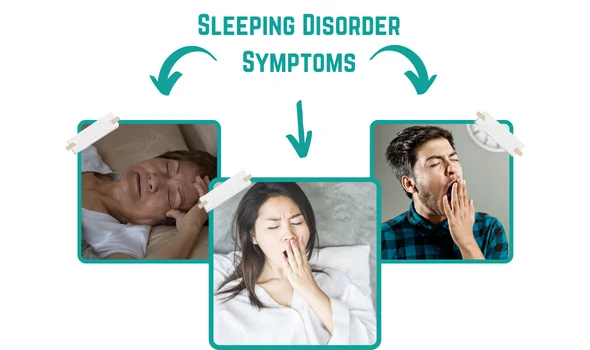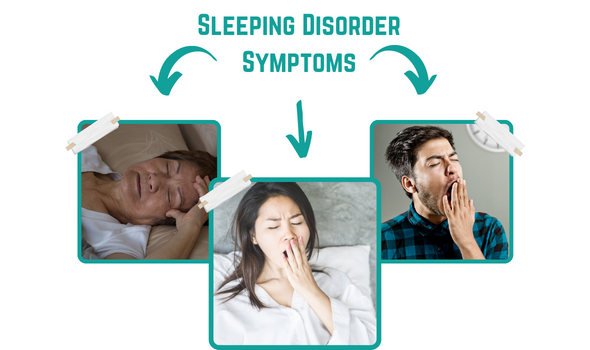
Sleep Disorder Treatment in Jaipur

Sleep Disorder Treatment in Jaipur offers comprehensive solutions for individuals suffering from various sleep disorders. With a range of state-of-the-art facilities and experienced healthcare professionals, Jaipur provides effective treatment options to improve sleep quality and overall well-being. The city boasts specialized sleep clinics that conduct thorough evaluations and diagnostics to identify the underlying causes of sleep disorders. Treatment modalities include medication management, behavioral therapy, lifestyle modifications, and advanced sleep technologies. Highly trained sleep specialists guide patients through personalized treatment plans, ensuring optimal results. Jaipur’s commitment to addressing sleep disorders allows individuals to regain control of their sleep patterns and experience a restful and rejuvenating night’s sleep.
Types of Sleeping Disorders:

Insomnia
Insomnia, a common sleep disorder, can cause difficulty falling asleep or staying asleep. Treatment options in Jaipur include medication, therapy, and lifestyle changes for better sleep.
Sleep Apnea
Sleep Apnea, a sleep disorder, involves pauses in breathing during sleep. In Jaipur, effective treatment options for Sleep Apnea include continuous positive airway pressure (CPAP) therapy and lifestyle modifications.

Narcolepsy
Narcolepsy is a neurological disorder characterized by excessive daytime sleepiness, sudden sleep attacks, and loss of muscle control. In Jaipur, specialized clinics offer diagnosis and treatment options, such as medication management and lifestyle adjustments, to help individuals manage their symptoms and improve their quality of life.
Parasomnias
Parasomnias are a group of sleep disorders characterized by abnormal behaviors, movements, emotions, or perceptions during sleep.
- Examples of parasomnias include sleepwalking, sleep talking, night terrors, sleep-related eating disorder, and REM sleep behavior disorder.
- Parasomnias can disrupt sleep quality and lead to daytime fatigue and impaired functioning.
- Diagnosis of parasomnias involves medical history evaluation, sleep studies, and sometimes video monitoring during sleep.
- Treatment options for parasomnias may include medications, behavior modifications, and addressing underlying causes or triggers.
- Managing stress, maintaining a regular sleep schedule, and creating a conducive sleep environment can help reduce the frequency and severity of parasomnias.
- Consultation with a sleep specialist is recommended for accurate diagnosis and personalized treatment plans for parasomnias.

Sleeping Disorder Symptoms

Sleeping disorder symptoms can vary depending on the specific sleep disorder, but common symptoms include difficulty falling asleep, difficulty staying asleep, excessive daytime sleepiness, snoring, gasping or choking during sleep, restless legs or leg movements, nightmares or night terrors, sleepwalking, sleep talking, and frequent awakenings during the night. Other symptoms may include morning headaches, irritability, difficulty concentrating, memory problems, and decreased performance in daily activities. If experiencing any of these symptoms persistently, it is advisable to seek medical evaluation and consultation with a sleep specialist for proper diagnosis and treatment.
Causes of sleeping disorders
The causes of sleeping disorders can be multifactorial and vary depending on the specific sleep disorder. Common causes include stress, anxiety, depression, certain medications, medical conditions (such as sleep apnea or restless legs syndrome), irregular sleep schedule or poor sleep habits, excessive caffeine or alcohol consumption, and environmental factors (such as noise or uncomfortable sleeping conditions). Identifying and addressing the underlying causes is essential for effective management and treatment of sleeping disorders.
Respiration Problems and Allergies:
Respiration problems and allergies can contribute to sleeping difficulties. Conditions like asthma, chronic obstructive pulmonary disease (COPD), and allergies can cause breathing issues, leading to disrupted sleep and sleep disorders.
Chronic Pain:
Chronic pain can significantly impact sleep quality. Persistent pain conditions, such as fibromyalgia, arthritis, or back pain, can make it difficult to fall asleep or stay asleep, leading to sleep disturbances and insomnia.
Anxiety and Stress:
Anxiety and stress can disrupt sleep patterns. Excessive worrying, racing thoughts, and heightened arousal can make it challenging to relax and fall asleep, contributing to insomnia and other sleep disorders.
Sleeping Disorder Diagnosis:
Diagnosing a sleeping disorder involves a comprehensive evaluation. This typically includes a thorough medical history assessment, sleep diary analysis, and possibly a sleep study. Sleep studies may involve monitoring brain activity, heart rate, breathing patterns, and other physiological parameters to identify the specific sleep disorder and guide appropriate treatment strategies.
Sleep Disorder treatment in Jaipur
Sleep Disorder treatment in Jaipur offers comprehensive solutions to address various sleep disorders. With specialized sleep clinics equipped with advanced facilities, individuals receive personalized treatment plans. Treatment options include medication management, behavioral therapy, lifestyle modifications, and innovative sleep technologies. Experienced sleep specialists ensure optimal care and support to improve sleep quality and overall well-being. Jaipur’s commitment to sleep disorder treatment provides individuals with the opportunity to regain control of their sleep patterns and lead a healthier life.
Medical Treatments:
Medical treatments for sleep disorders can include the use of medications to address specific symptoms or underlying conditions. Examples include sleep aids to promote sleep, medications for managing respiratory disorders like sleep apnea, or drugs to alleviate symptoms of restless legs syndrome. It is important to consult with a healthcare professional to determine the appropriate medical treatment based on the specific sleep disorder and individual needs.
Changes in Lifestyle:
Making changes in lifestyle can have a significant impact on improving sleep quality and managing sleep disorders. Adopting a regular sleep schedule by going to bed and waking up at consistent times can help regulate the body’s internal clock. Creating a sleep-friendly environment with comfortable bedding, minimal noise, and low light can promote better sleep. Engaging in regular exercise, but avoiding intense physical activity close to bedtime, can also improve sleep. Additionally, practicing relaxation techniques, such as deep breathing or meditation, before bed can help reduce stress and promote relaxation. Limiting caffeine and alcohol intake, especially in the evening, can also contribute to better sleep. Overall, incorporating healthy lifestyle habits can positively influence sleep patterns and overall well-being.
Quick Contact
Address
70, 46, Patel Marg, opposite Rastogi Gas Agency, Mansarovar Sector 7, Agarwal Farm, Sector 9, Mansarovar, Jaipur, Rajasthan 302020
deveshkanoongo0701@gmail.com
Phone No.
9024605799, 9414774975
